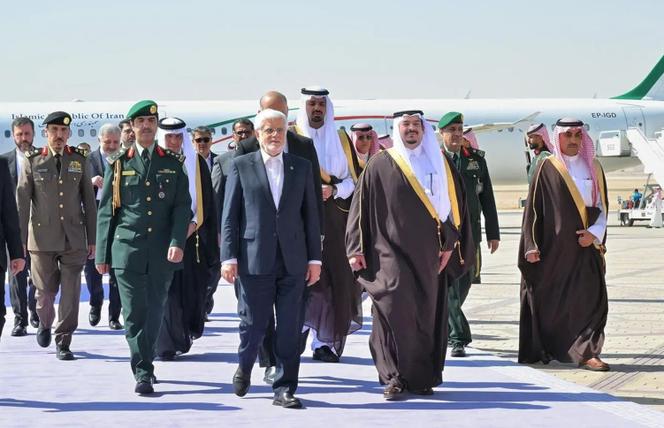


As Donald Trump puts the finishing touches to the Middle East policy for his second term in office, on Monday, November 11, Arab and Muslim countries drew up a common roadmap in Riyadh. It calls for an immediate ceasefire in the Gaza Strip and Lebanon, and reiterates the two-state solution – with both Israel and Palestine – as a central element to restoring stability in the region.
Noting their impotence in influencing President Joe Biden's administration, which has proven incapable of holding its Israeli ally back in a conflict that has already claimed more than 43,000 lives in Gaza and 3,200 in Lebanon and threatens to evolve into an open confrontation with Iran, Arab and Muslim capitals have raised their voices. One year to the day after a first extraordinary summit devoted to Gaza, organized under Saudi auspices and characterized by dissension, the countries of the Arab League and the Organization of Islamic Cooperation (OIC) called for an arms embargo to be imposed on Israel and for a freeze on its United Nations General Assembly membership.
In a joint statement, they condemn Israel's aggression in the Gaza Strip and its expansion into Lebanon, as well as violations of the sovereignties of Iraq, Syria and Iran, and criticize the international community's inaction. They denounce Israel's policy of collective punishment and its use of sieges and starvation as weapons against civilians in the Gaza Strip. They call on the international community to take immediate action to put an end to the humanitarian disaster.
"There has been a gradual shift towards a more direct, firmer tone. This reflects an admission of failure since the 2023 summit, which achieved nothing," said Hasni Abidi, director of the Geneva-based Study and Research Centre for the Arab and Mediterranean World. "The Arab states have done their utmost to not take part in what is happening in the region, but they are becoming increasingly fragile, particularly the Gulf States, Egypt and Jordan. Arab public opinions are shocked by their impotence and criticize the states' silence."
Saudi Crown Prince Mohammed bin Salman ("MBS") set the tone in the inaugural speech, cementing the fact that the Saudi position towards Israel has grown tougher over the past year. "The kingdom renews its condemnation and categorical rejection of the genocide committed by Israel against the Palestinian people, which has claimed more than 150,000 victims, including martyrs, the wounded and the missing, most of whom are women and children," condemned the Saudi royal.
You have 50.19% of this article left to read. The rest is for subscribers only.
